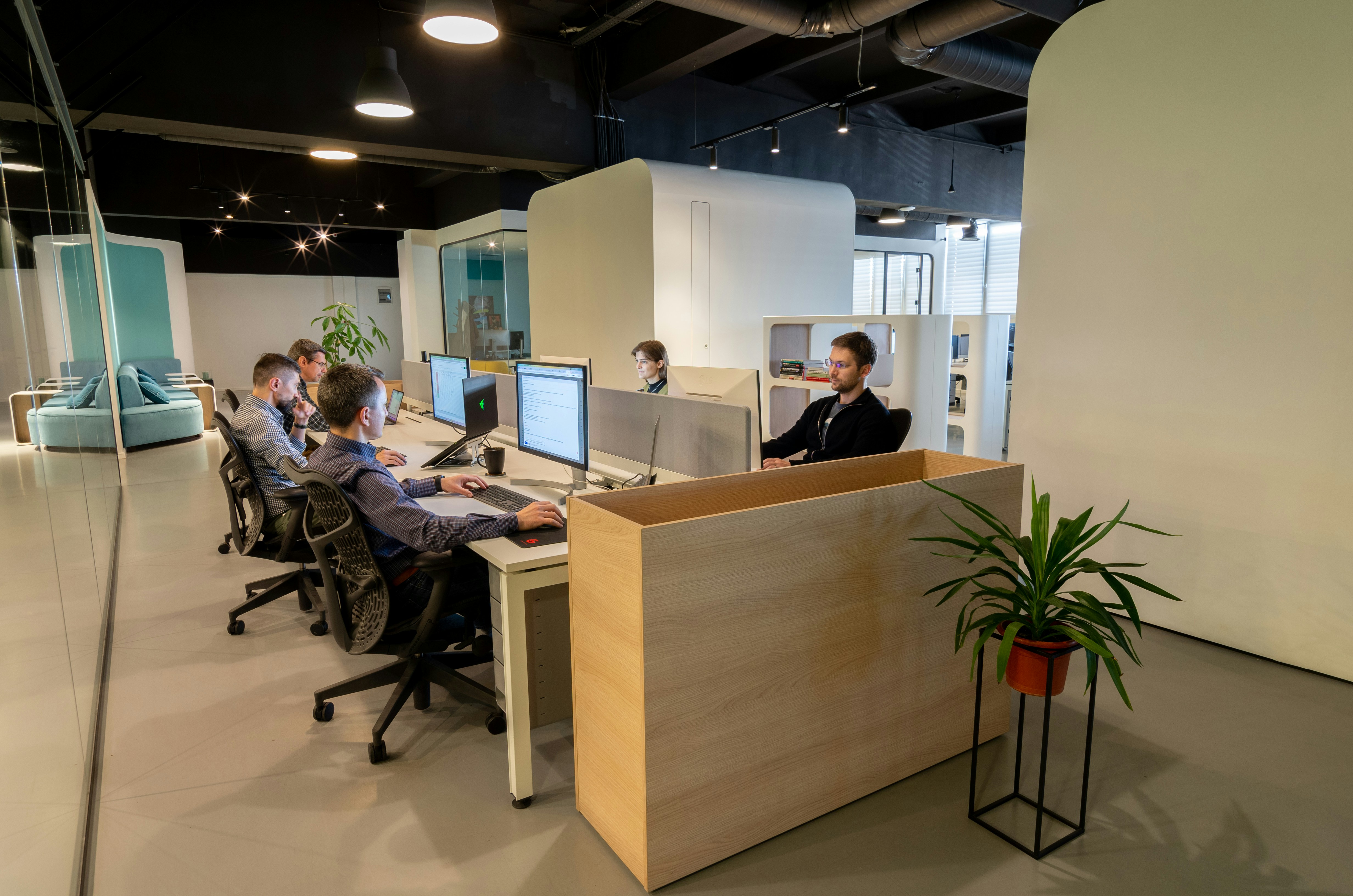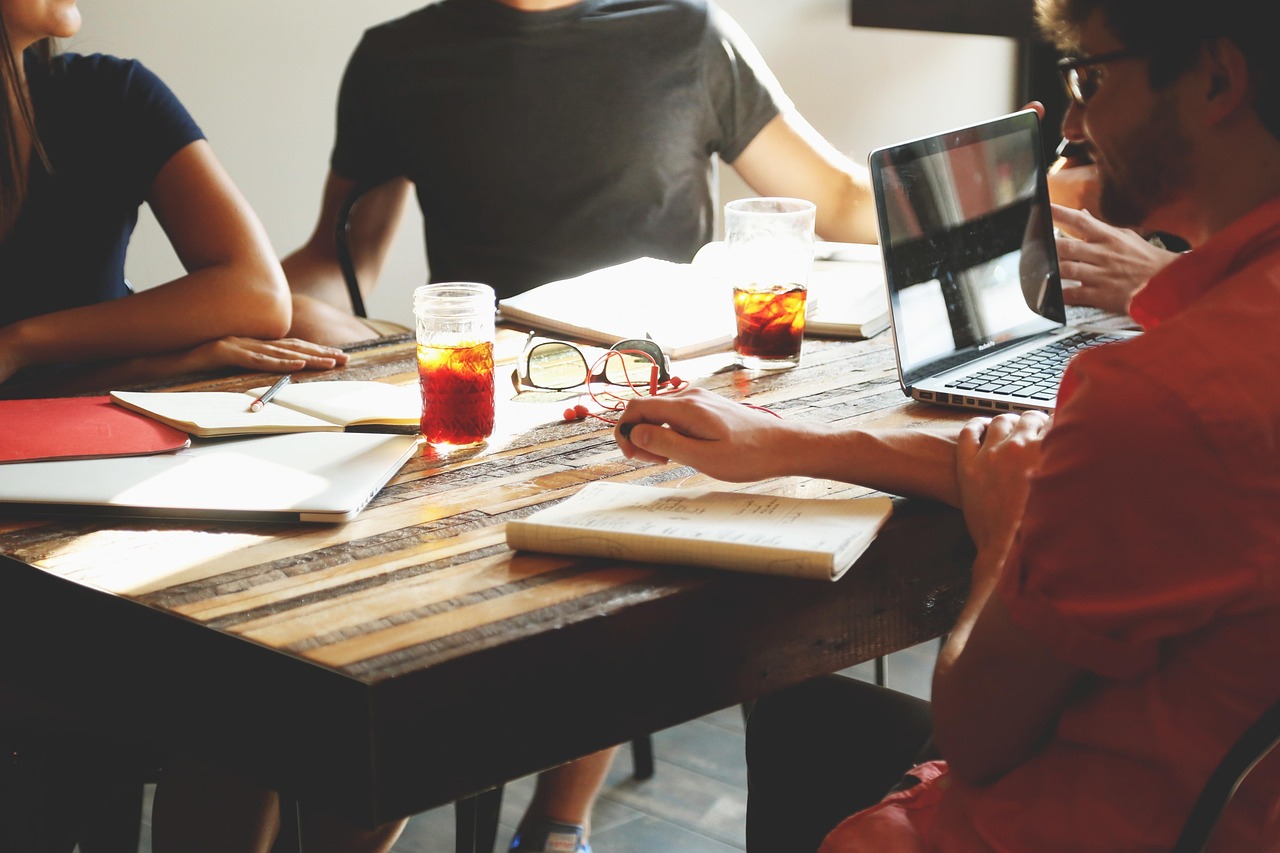Why
Words from our CEO, Erling Linde, about the WHY:
“Since starting Flowcase in 2012, we have been on an exciting journey, growing at a fast pace and getting more and more happy customers. When asked why we started and where we are heading, part of the answer has obviously been to grow the company to financial success; but, there have also been decisions made and directions taken, that have not been purely financial. In our hearts, we knew they were the right decisions to make, whether they revolved around employee happiness or our contribution to the wider society. It was when we started looking at Flowcase from a wider sustainability perspective that it all came together. It is now clear to us that growing Flowcase, considering all the different dimensions of sustainability, is what we have always wanted to do. Now we have a framework and the toolsets we need to make this happen. A further realization is that this focus is not only a nice thing to have but is crucial to the success of the company on all levels, financials included.”
When
We kicked off our Sustainability Action Plan at our biannual Company Gathering in Italy in the Fall of 2021. It was decided that we would focus on the following 5 SDG's:
3 Good Health, 5 Gender Equality, 9 Innovation and Infrastructure, 12 Responsible Consumption, 13 Climate Action.
Looking at those goals, we tried to define what measurements we had in place already and where we could improve. However, as the work progressed, we wanted to adapt a more holistic approach to sustainability. We decided to adopt the Future Fit Business Strategy [1]. An important point in the Future Fit Business Strategy (FFBS) is that picking and selecting from the goals as you see fit is not really a sustainable strategy. Depending on the type of company you are, there are goals which are more relevant and emergent than others, but it doesn’t mean that you should ignore the ones that are not. Committing to FFBS doesn’t mean throwing the SDGs out of the equation. The FFBS is very much aligned with the SDGs, but it means that we don’t get to pick and choose between them. Instead, we follow a strategy which makes sure that we integrate all SDGs related to our company.
How
By using the Future Fit Business Strategy as a guide and work tool to ensure we get into all corners of sustainability, our Sustainability Policy - This is Where We Are Now - is divided under three headings:
- Flowcase as a Product
- Flowcase Internally
- Flowcase Externally
Flowcase as a product
Security and processing of personal data
Security is our top priority in the Flowcase tool. The data stored in Flowcase is owned by our customers, but we are still responsible for protecting this data. The processing of personal data is carried out in accordance with the Personal Data Act and the Regulation (EU) 2016/679 - General Data Protection Regulation (GDPR) as well as other relevant privacy laws. As part of our daily work activities, some of our employees may need to access our customers’ data in order to provide them support. We therefore have clear rules for how this is done.
Routines and measurements in place
- Data Protection Policy
- Security Policy
- Incident and Discrepancy Reports
- Internal Audit
- ISO 27001 Certified
- Monthly Security Updates
- Biannual Security Workshops
- Third-Party Penetration Testing
Enabling sustainable customer behavior
Sustainable handling of personal data in Flowcase is both about protection of existing data as well as making sure that the tool is being used in a sustainable way. Finding the right consultants is essential to win a bid - and finding the right consultants should always be based on skills and experience - not name, looks or age. Unconscious bias is something we take very seriously in Flowcase. In our Human Rights Impact Assessment we dig deeper into this, and assess which potential positive, as well as negative impact, we could have on Human Rights as a product.
In addition to this assessment, we have also:
- Created an Acceptable Use Policy describing the intentional and acceptable use of the tool.
- Planned customer activities to learn more about how we can develop the tool to enable our customers to become more sustainable. This could be in the usage of the tool internally in their company and in meeting sustainability requirements in bids.
Kiva Cards instead of merch
As a SaaS company, we luckily leave more footprints than waste. When present at expos or fairs, we have decided to stop buying merchandise, as most of this ends up in the trash. Instead, we put our resources towards offering a raffle to win a Kiva Card. Kiva is a US nonprofit that provides micro loans for people who need a little help getting a new business up and running. The winner chooses the good cause they would like to support and Kiva loans the money to these people. Once paid back, the money can be sent to the winner of our raffle or reinvested in a new micro loan. This makes so much sense to us.
Flowcase internally
At Flowcase, we are very concerned with the safety and well-being of our employees. In addition to the constitutional rights secured by the UN in The Universal Declaration of Human Rights[1], we are constantly aware and thinking of how to make Flowcase the best place to work for everyone. We grow our customer base mainly through word of mouth - which also seems to be a tendency when we recruit new colleagues. Currently, 45% of our employees are referred hires! When employees recommend a friend or former colleague to come join our company, we can’t help but feel that we are doing something right.
We constantly want to improve, but we already have some great measures in place to keep our employees happy and safe.
Work-life balance
The importance of having a healthy work-life balance is hardly rocket science. And it is certainly something we take very seriously. Some of the measurements we have taken to ensure balance are:
Work Remotely - or from the Office. Sometimes it makes sense to work from home, and sometimes the office. In Flowcase, we let our employees decide. Not having to commute back and forth to the office every day frees up a lot of time during the day and leaves less of a footprint as transport is avoided.
Flexible Working Hours. Want to have a break and work out in the middle of the day? Go for it! Working hours are flexible and our employees have a high degree of freedom to plan their days as they want.
Social Balance. As Flowcase is scattered over several locations, we prioritize to meet up two times a year for our biannual Company Gathering. This ensures that we keep a strong and united work culture, even if we don’t share the same office daily. Online games and virtual lunches are also arranged on a regular basis. Flowcase also supports and encourages employees to visit colleagues in other locations throughout the year, to further ensure a healthy social balance.
Safe and Respectful Workspace. Ensuring a safe and respectful work environment is a top priority. We value all employees and potential new candidates as unique individuals. We welcome the variety of experiences they bring to our company and we have a strict non-discrimination policy. We believe everyone should be treated equally, regardless of race, sex, gender identification, sexual orientation, national origin, native language, religion, age, disability, marital status, citizenship, genetic information, pregnancy, or any other characteristic. If an employee feels that they have been discriminated against, they have the option to report this directly to their nearest leader or through an anonymous report. We have a clear internal communication policy where we have determined how we expect employees to communicate with each other, in a respectful and judgment free manner.
Technology lifecycle management
To do our daily work we are dependent on a certain amount of tech gear. So naturally, we created a policy for how to handle gear when it’s no longer working for us. We have signed up with https://no.3stepit.com/restepit who offers a safe and sustainable disposal of any tech gear we have. The best part is that it’s not just a ride to the dumpster! They pay us for our used gear and fix it up so it can be workable again - a circular economy model – a win, win. For now, we have this set up for our office in Oslo but as we grow and the amount of tech waste grows with us, we will set up a similar plan for our other offices.
Internally, we also have a policy for how often we are allowed to buy new gear - encouraging employees to avoid replacing well-functioning equipment.
Flowcase externally
At the early stages of getting to understand the Future Fit Business benchmarks, we found that for some of the benchmarks it is not entirely in our hands to become 100% fit. We were unsure of how to deal with issues like this so we reached out to the organization who created the benchmarks. Our main questions were focused on the fact that, since we don’t own any of our office locations, we have no say in a lot of the choices made regarding electricity source, heat source and other sustainability-related issues. They replied that, in situations like this, we can question the building managers about their choices – raising questions around their sustainability policy. Just the fact that you ask will most likely put some attention towards sustainability. So that is our approach right now towards our office owners and suppliers in general - in the future, we might add to this by having more set requirements and restrictions for our choices.
“Ripples in the water”
Inspired by the advice given by the Future Fit Business organization, we have initiated a round of simple office and supplier assessments. For our suppliers, we asked “Do you have a sustainability policy?” - we have received affirmative answers from most of our suppliers, which is great.
We took a similar approach with our office owners, with the addition of anything at the offices which we had an influence on ourselves. For Copenhagen, London, and Stockholm, we found that what we can do directly is very limited as we don’t buy coffee, print paper and so on, ourselves. The Oslo office is the biggest of our offices and has more autonomy in some areas, which leaves room for making more sustainable choices when shopping.
Were our requests ambitious enough? Maybe not, but perhaps just the fact that we are asking, will make a small ripple in the water, eventually growing into something bigger. Also as mentioned earlier, we want to update you on where we are right now - and keep building on as we go.
Transparency
It is important for us to be able to show our existing customers, and potentially new customers, how we are committed to become a Future Fit Business. We want to be honest about what we are doing right now. We are not shy to point out where we can do better. We will take responsibility and keep improving our ways - both internally and with our product. We never expect to “be done”, but we will always strive to do better.
Contact
If you have any questions, please reach out to:
Pernille Christensen // pernille@flowcase.com
[1] For further specifications on how we ensure the human rights for our employees, we recommend you check out our Human Rights Impact Assessment.




